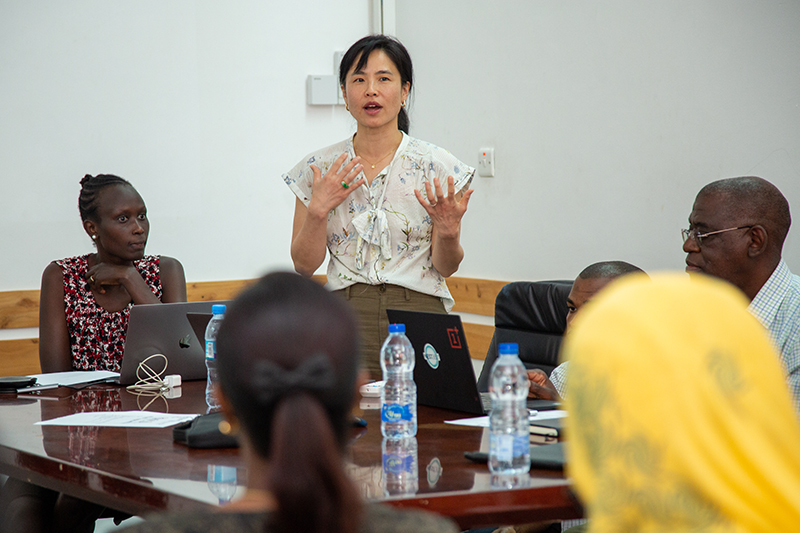
Michelle Hsiang, MD, MS, is preparing to lead an NIH-funded randomized clinical trial in Bagamoyo, Tanzania, that could transform what we know about chronic malaria.
Malaria, the deadliest disease in human history, kills children and makes adults – who have usually developed some immunity – extremely ill. But malaria can also become a low-grade chronic illness when a partially controlled parasitic infection lingers. This milder form of the disease has, until recently, been largely ignored.
“In higher transmission settings, there hasn’t really been a lot of focus on treating people with chronic malaria because the goal has been to decrease the burden of disease, with a focus on decreasing acute illness and deaths,” Hsiang said.
But, as the spread of malaria has slowed and many countries have begun to try to eliminate it altogether, chronic malaria has gained attention.
“If people are walking around with parasites, that becomes an issue in elimination settings,” Hsiang said. “Chronic infections are a reservoir for persistent transmission in communities.”
Growing evidence suggests that chronic malaria is a serious health concern. It can cause anemia and leave people more susceptible to other infections. It can interfere with children’s growth and cognitive development.
Hsiang’s soon-to-launch two-year trial will test an intervention to detect and prevent chronic malaria in children and measure how their overall health improves.
The trial will randomize 600 children under age 10 into three groups. Some children who come to a clinic with a fever will be tested for malaria using a rapid test; if they test positive, they will be treated. This is the control group.
Rapid tests are the most commonly used diagnostic technique, but they only catch 50-75% of low-level malarial infections in people who have a fever, according to Hsiang’s previous research. They’re even less effective in people without a fever. And if infections aren’t caught, they aren’t treated, leaving children sick for several months at a time.
Enter the intervention. Some children who present with a fever and have a negative rapid test will have it followed by a more sensitive PCR test. If that test is positive, they will be treated. The researchers will also take PCR tests into the community three times a year, looking for any children who aren’t sick enough to go to a clinic. There, too, they will treat any children who test positive. The researchers hypothesize that more sensitive and aggressive testing will catch more cases of chronic malaria, and treating those cases will leave more kids free of parasites for longer stretches so that their overall health and development should improve.
“If you looked at the life course of a chronic malaria case, there are times when the parasite level is high and times when it is low, but it lasts a long period of time – longer than the time it takes a person who has a high parasite level and a fever to get treated and be done,” Hsiang said. “Those acute cases might not be contributing to the total burden of illness as much as someone who has an infection for months.”
The trial will be one of the first to track and treat chronic malaria infections over time, rather than just catching them at a given moment as a by-product of searching for acute malaria.
The relatively long follow-up time of two years will allow researchers to track the children’s sick visits, school development and growth, and to test them for anemia, immunological response to malaria and other infections, and cognitive performance. The trial will also assess economic impacts in terms of costs for families and the health system.
Researchers also hope to gain insight into non-malaria causes of fever, which also gain relative importance as malaria declines. However, pathogen-specific microbiologic testing is expensive and laborious.
Hsiang and her colleagues will gather participants’ blood and nasopharyngeal samples and use them to try to identify what other pathogens the children may be infected with. They will explore how such infections interact with chronic malaria to impact children’s health. Hsiang, who is a Chan Zuckerberg Biohub investigator, will employ that group’s signature method of agnostic genetic sequencing for this part of the project.
Hsiang will work with collaborators from Ifakara Health Institute, the Swiss Tropical and Public Health Institute, and Stanford University. IGHS affiliate Susanne Martin Herz, MD, PhD, will advise on the neurodevelopmental assessments.